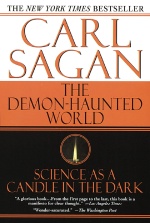Be skeptical, be imaginative
July 23, 2022
Quote of the Week
"What is wanted is not the will to believe, but a will to find out, which is the exact opposite." - Bertrand Russell
Should Children Be Activists
 Historically, youth activists have been integral to social movements. The younger demographic is increasingly mobilizing itself to bring light to matters of climatic and civic dimensions in the contemporary era. While their stewardship is encouraging, this weeks' article asks the readers to re-engage on how activism relates to children. Might children be better off by learning to stand up for certain values (kindness, fairness, open-mindedness, etc) than issues? How might parents and caretakers help children in stepping aside from the premature righteousness that oft-accompanies activism pursued by young minds? Taking cues from Mary Shelley, what might be the ways for parents and families to teach children and youth to have power over themselves, more than the external worldly issues?
Historically, youth activists have been integral to social movements. The younger demographic is increasingly mobilizing itself to bring light to matters of climatic and civic dimensions in the contemporary era. While their stewardship is encouraging, this weeks' article asks the readers to re-engage on how activism relates to children. Might children be better off by learning to stand up for certain values (kindness, fairness, open-mindedness, etc) than issues? How might parents and caretakers help children in stepping aside from the premature righteousness that oft-accompanies activism pursued by young minds? Taking cues from Mary Shelley, what might be the ways for parents and families to teach children and youth to have power over themselves, more than the external worldly issues?
[Read the article here]
Reading Corner
 Title: Demon Haunted World: Science as a Candle in the Dark
Title: Demon Haunted World: Science as a Candle in the Dark
By: Carl Sagan
For: 14+ years
This book -- invaluable for young adults and even parents -- is a tool to cultivate healthy skepticism in children. It inspires readers to ask questions (why? how? who?when?), sift through the burgeoning corpus of information, be investigative and independently shape their imaginations. The author, Carl Sagan, a well-noted astronomer and planetary scientist, played a distinguished role in drawing public know-how on the connection between humans and cosmos. Especially in matters of children's upbringing in the scientific and information-savvy age, he advanced the courage to ask questions as a source of wonder for young minds. In this spirited book particularly, he advocates for scientific attitudes in that he walks through the history and culture debunking celebrated authorities and the loopholes in their premises. Overall the book is a "siren song" for reasoning as a path to intelligent decision-making. Also, readers can rest assured that this is not a science / STEM oriented reading; it can be enjoyed by people of diverse educational backgrounds and ages.
Download a free copy from this booklover's project: link
Be the Change
Play this game - Parable of the Polygons - with children in your family. Best to play with kids of ages 11 and above; one on one or even in a group. This digital game uses two humble protagonists - a square and a triangle. It teaches children how the shape of society is created. As the creators of the game put it, playing this simulated game equates to a story of how individual choices add up to form the character of our neighborhoods, cities and the world.





